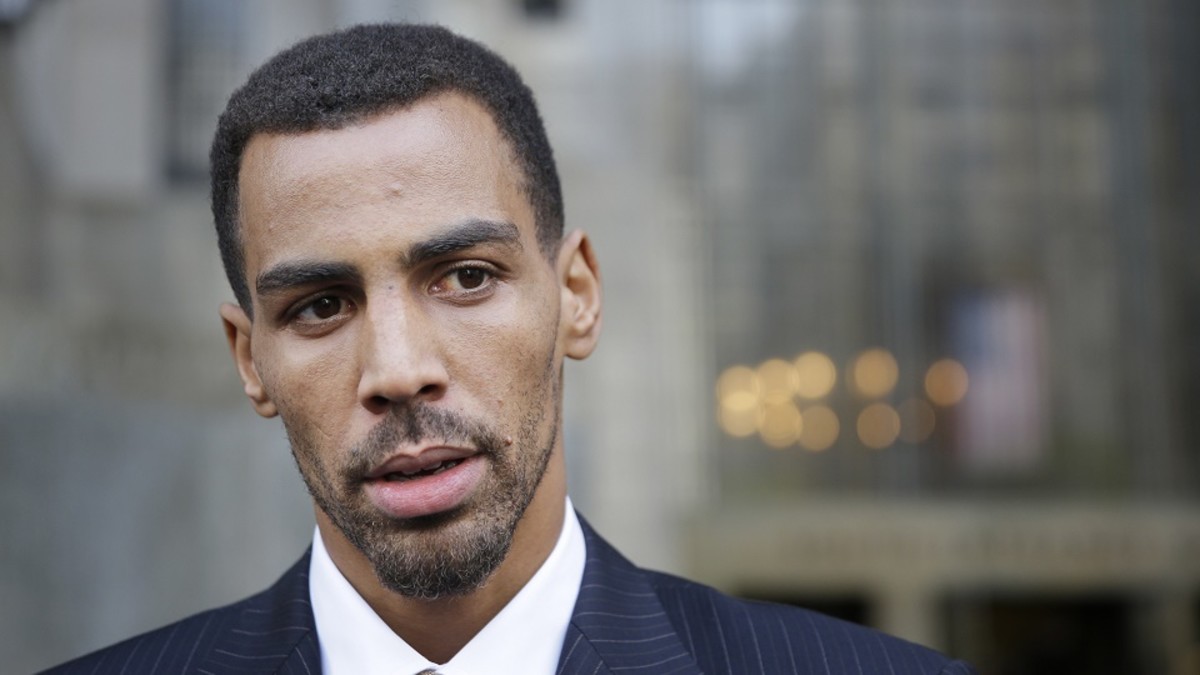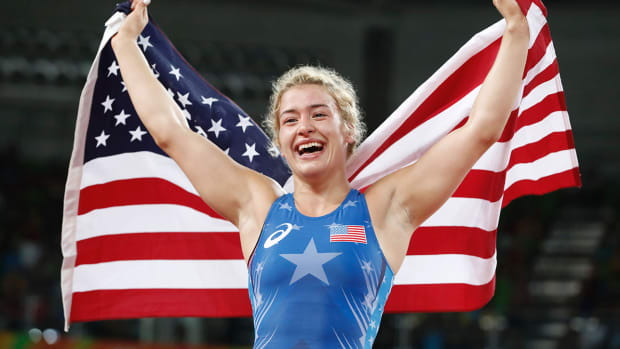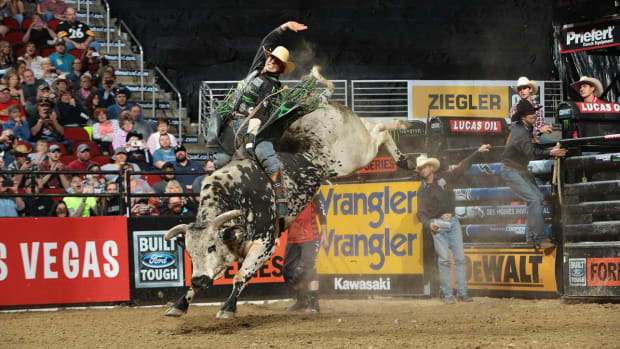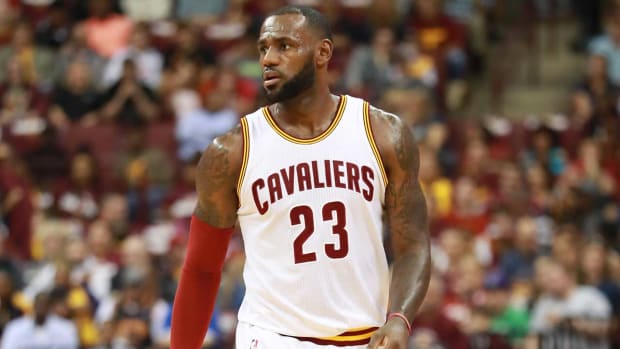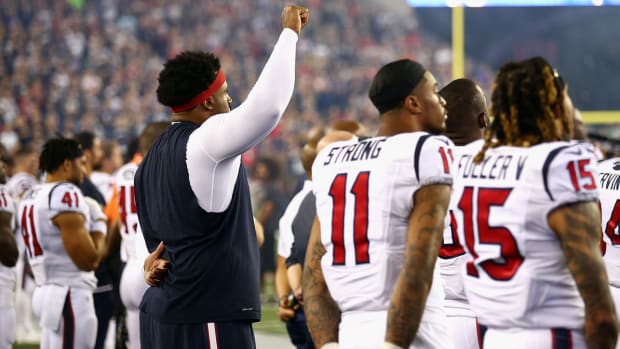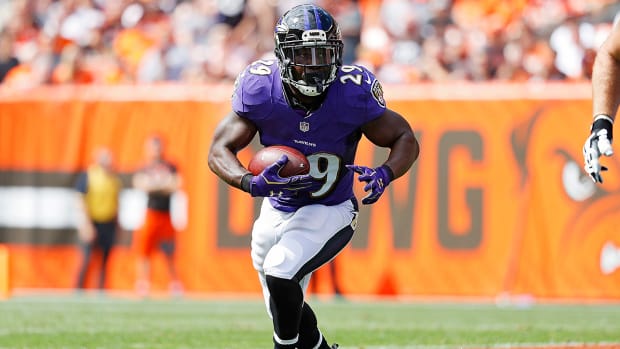Thabo Sefolosha's pursuit of justice is opening doors for other athletes
Right now, there is no athlete more powerful than Thabo Sefolosha.
The Atlanta Hawks wing appeared in an NBA game on Wednesday for the first time in more than six months, having recovered from a broken leg he sustained in an altercation with New York police officers that forced him to miss the playoffs last season. Sefolosha played 19 minutes and tallied two points, seven rebounds, three assists and four steals in a 106–94 loss to Detroit.
But it’s in the courtroom where Sefolosha is making waves that are starting to ripple across the sports world. On Oct. 9, a Manhattan jury deliberated for an hour and deemed Sefolosha not guilty of disorderly conduct, resisting arrest and misdemeanor obstruction of a government administration.
A video of the incident shows officers grabbing Sefolosha and pulling him to the ground outside a New York nightclub on April 8. Police accused him of refusing to leave the area where fellow NBA player Chris Copeland had been stabbed. Sefolosha countered that he was singled out by an officer, then taken down and arrested as he attempted to hand money to a homeless person. He and his lawyers called it a classic case of racial profiling. On Monday, the Swiss-born star told ESPN he will file a $50 million civil suit against the city of New York, the NYPD and the officers involved.
• MORE: See SI's Crystal Ball predictions for the NBA season
“There’s a lot of unknown about how this will affect me two years from now, five years from now, 10 years from now,” Sefolosha told ESPN’s Hannah Storm. “I think it’s the right approach to put lights [on] a situation like this and be able to fight back in a legal way and in a way that can empower, hopefully, more people.”
That last phrase is what makes Sefolosha’s case unique and potentially momentous: He is putting his own reputation on the line in an attempt to shed light on racial profiling and police violence and to encourage others to do the same. Last month, Sefolosha was offered a quite friendly plea bargain — one day of community service and six months staying out of trouble in exchange for all charges being dropped — and he rejected it. Sefolosha didn’t just want a clean record—he also wanted justice.
Sefolosha’s bold approach is helping to foster a climate in which athletes feel more comfortable speaking up. Retired tennis star James Blake went to the press last month about an incident in which a plainclothes NYPD officer approached him outside a hotel, pulled him to the ground and handcuffed him in a case of mistaken identity. The officer was transferred to desk duty, and Blake, who is black, received apologies from police commissioner Bill Bratton and Mayor Bill de Blasio.
(NYC police union president Patrick Lynch was not so apologetic, calling the public’s criticism of the officer “un-American.”)
But Blake, like Sefolosha, is still determined to press the issue.
“There are so many stories like mine — but most people don’t have the platform I have,” Blake wrote in a piece published Tuesday at the Players’ Tribune. “However long it takes, I’m sticking with it. I owe it to anyone else who has gone through this.”
Open Floor: Aldridge's fit with Spurs, Caron Butler Q&A, rankings and more
Blake said his case got attention for two reasons: first, because people know his name, and second, because the incident was captured on video.
“In New York City each year, there are more than 4,000 reported cases of excessive force involving a police officer and a citizen,” he wrote. “Of these, how many are invited to City Hall to discuss it?”
But Blake is being too modest. The truth is, his case would have also gone unnoticed had he not made the brave decision to talk. It will likely continue to receive attention for as long as he pursues it.
And then there’s the story of Milwaukee Bucks forward John Henson, who took to social media last week to explain an incident of alleged racial profiling at a jewelry store in Whitefish Bay, Wis. Henson went to the store to buy his first Rolex. The doors were locked. After he rang the doorbell, police showed up.
In the dispatch audio, an employee can be heard saying the store had received some “suspicious phone calls” about what time they were closing, and that the callers “just didn’t sound like they were legitimate customers.” The store owner has since claimed that it was not a case of racial profiling, noting that the employee thought Henson might be a “suspect” who had come to the store several days earlier with stolen plates.But that phrase — “they just didn’t sound like they were legitimate customers” — sure sounds like the epitome of racial coding. Henson, like Sefolosha and Blake, spoke up.
“This was one of the the most degrading and racially prejudice (sic) things I’ve ever experienced in life and wouldn’t wish this on anyone,” the 24-year-old Henson wrote in a since-deleted Instagram post. “This store needs to be called out and that’s what I’m doing. You have no right to profile someone because of their race and nationality and this incident needs to be brought to light.”
Of course, Sefolosha alone is not responsible for the recent string of athletes talking about their experiences of discrimination (a string that also includes former major leaguer Doug Glanville, who has written multipletimes about being racially profiled and even pushed for a new state law in Connecticut). Sefolosha’s case comes at a time when double standards in policing are being discussed and examined like never before, due in large part to the Black Lives Matter activist movement. Recently, in the wake of an extensive New York Timesstudy that found racial disparities in North Carolina traffic stops, President Barack Obama said even he has been pulled over for no apparent reason.
• MORE: Wolves win emotional game in Flip Saunders's memory
On the one hand, racial profiling is not a new part of the experience of black athletes. There have been a handful of high-profile cases, like that of former Texans running back Ryan Moats in 2009. And some outlets have attempted to document it, as USA Today did in 2013, discovering that black NFL players were arrested nearly 10 times as often as white ones.
But Sefolosha’s case is unique to 2015. There’s video of the incident. He is holding the police accountable. He’s using the media to amplify his voice. And it’s less than a year removed from what felt like a bona fide political awakening among athletes, especially in the NBA, where the league’s biggest stars — LeBron James, Kobe Bryant, Derrick Rose, Dwyane Wade, Carmelo Anthony — all expressed support for those protesting police brutality.
Sefolosha’s case perhaps represents a logical next step. By wearing “I Can’t Breathe” T-shirts, athletes seemed to say, “It could have been me.” By telling their personal stories, athletes are saying, “It is me.”
What these stories tell us is that racism doesn’t discriminate along economic lines — that athletes, six-figure salaries and all, don’t live in a bubble, and that having the “wrong” skin tone in the “wrong” place can be enough to spark suspicion. James Blake was leaning against a pole outside a fancy hotel, scrolling through his phone. Doug Glanville was shoveling snow in his own driveway. John Henson was trying to buy a watch. And Thabo Sefolosha was standing outside a nightclub.
“In the midst of everything that’s going on in the last two years on the TV — police this, police that — I couldn’t believe something like this had happened to me,” Sefolosha said Thursday in a piece for GQ.
But now he realizes: “It was an act of police brutality, and I believe it could happen to anyone.”
